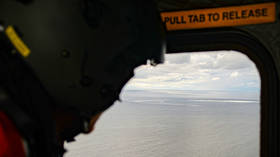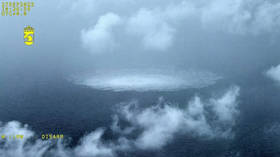Italy ramps up surveillance of underwater cables – media

The Italian government has strengthened surveillance and controls on underwater energy and telecommunications cables off its shores, a source close to the matter told Reuters on Tuesday.
The decision comes in response to the explosions that were detected in late September on Nord Stream 1 and 2 gas pipelines, connecting Russia to the EU through Germany, the source said.
Last week, Reuters also reported that Italy had boosted surveillance of the pipelines bringing gas to the country from the south and east.
According to two senior officials, who talked to the agency, security measures were boosted at the TransMed pipeline, which connects Algeria to Sicily, the Trans Adriatic Pipeline (TAP), running from Azerbaijan to Apulia, and the GreenStream connection, between Libya and Sicily.
Danish authorities reported leaks on both the Nord Stream 1 and 2 on September 26 after the operator experienced loss of pressure on the pipelines. Danish and Swedish authorities later said a series of undersea explosions had been detected near Bornholm island in the Baltic Sea.
The incident is widely considered to be the result of sabotage. Some Western officials claimed that it was Russia, which blew up its own pipelines, while Moscow has pointed the finger at the US as the potential culprit.
Russia’s President Vladimir Putin said last week that “sanctions are no longer enough for the Anglo-Saxons [the US and UK]. They have turned to sabotage – it’s unbelievable, but it’s a fact – by organizing the explosions on the Nord Stream international gas pipelines.”
Last week, US Secretary of State Antony Blinken called the explosions a “tremendous opportunity” to wean the EU off Russian energy, while boasting about the US becoming “the leading supplier of [liquefied natural gas] to Europe.”
The pipelines, which have been at the heart of the energy standoff between Moscow and Brussels amid the conflict in Ukraine, suffered significant damage, but, according to Russia’s gas giant Gazprom, they can be restored with “time and appropriate funds.”
The company also said that one of the lines of Nord Stream 2 could have been unaffected by the blasts. Pressurized gas had to be drained from it in order to carry out diagnostic tests, it added.













